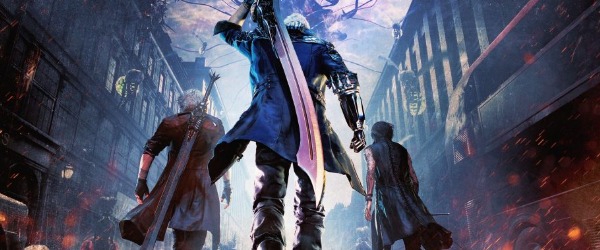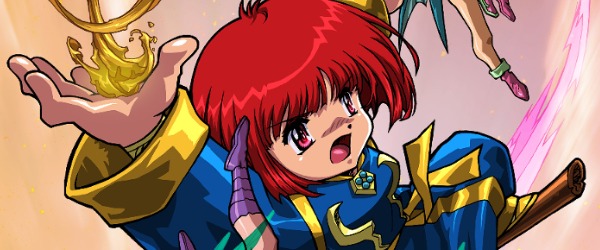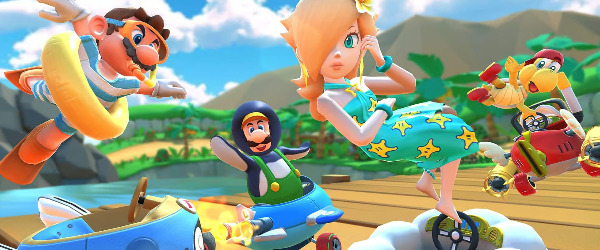
Why Nintendo Should Have Supported the Wii for Longer - Article
by Stephen Barrett , posted on 08 April 2015 / 13,016 ViewsNintendo took the gaming world by storm in 2006 with their seventh-generation home console, the Wii. The system’s intuitive motion controllers, spearheaded by the bundled killer app Wii Sports, capitalized on the potential mass-market appeal of gaming and proved to be lightning in a bottle for the company. The Wii remained difficult to find on store shelves well over a year after its extraordinary launch and was nearly impossible to find during the first two holidays.

Many would say that the Wii was hastily abandoned due to Nintendo choosing to chase the prospect of third party support for its successor, the Wii U – a prospect that, clearly, did not go as planned. Others would proclaim that the draw of motion controls was short lived and that much of that audience had moved on.
In any case, Nintendo shipped a respectable 15 million Wii consoles in 2010 - four years after its launch - falling right in between Sony and Microsoft’s shipments for their respective consoles that year. The highly acclaimed Super Mario Galaxy 2 and Donkey Kong Country Returns were released this same year by Nintendo, and other games from the publisher, including Sin & Punishment, Kirby’s Epic Yarn and Metroid: Other M, kept Wii owners fairly busy (along with Xenoblade Chronicles in Japan), not to mention third-party titles such as GoldenEye, No More Heroes 2, Just Dance 2, and Epic Mickey.

Despite a profound lack of first-party software, which is widely regarded as the main selling point of Nintendo’s systems, the Wii still managed to ship almost 10m units during its fifth year on the market (2011). To put that into perspective, the Wii U has yet to ship 10 million consoles over the course of its entire lifetime (two years and counting). The lesson learned here is that you don’t promptly abandon your most successful console ever for a “grass-is-greener” scenario, regardless of whether or not the initial craze for it has dwindled.
Let’s rewind to the late 1980s, during the reign of Nintendo’s first home console, the Nintendo Entertainment System. The year before its successor released, Nintendo still delivered quality software on the console without hindering the Super Nintendo’s respectable launch of first-party titles that included Super Mario World, Pilotwings and F-Zero. Obviously the Nintendo Entertainment System had no shortage of third-party games the year before the Super Nintendo arrived; around 200 titles in fact, but strictly looking at first-party games alone, there was an undeniable level of quality still present with Dr. Mario, Punch Out!! (re-released, sans the Mike Tyson license), Startropics, and a little game called Super Mario Bros. 3, which went on to become the biggest selling stand-alone game on the console by far.

Yet the Wii, a console that was at an astounding 81 million+ install base at the end of 2010, was all but given up on in 2011 and 2012 – the last two years of its life – and practically bereft of new releases from Nintendo outside of key titles like The Legend of Zelda: Skyward Sword and The Last Story.
While it’s true that the games of today require far more resources to develop compared to 1990, consider the effect that New Super Mario Bros. U (developed by Nintendo’s EAD Group 4) would have had on the original Wii’s twilight years, particularly if bundled. It would have provided a great swan song for the console, only lacking the higher resolution that it has in its current incarnation on the Wii U, possibly even giving the team more time to have Pikmin 3 ready for the launch of the new system.

Combine that with other possible additions to the Wii’s library, such as a true Wii Sports 3 from Nintendo’s EAD Group 2, and perhaps tasking other companies to make new iterations of, say, Starfox and F-Zero for the Wii (similar to what Namco and Sega did, respectively, on the GameCube) and it would’ve provided the console with a good batch of games without keeping other in-house Nintendo teams from working on Wii U projects and coming to grips with their first HD console.
The Wii was, in some ways, the biggest phenomenon the gaming industry has ever seen. Despite one’s stance on motion control gaming or how important high-definition visuals were at the time, the little system that could marked a smashing comeback for Nintendo and deserved to exit the market on a much higher note than it did.
More Articles
Great article.
I fully agree, Wii deserved more of an ending. Only thing I'm a bit confused with was the mention of NSMBU, Wii already had one which was bundled I think.
Yes, it did, & it sold extremely well. I think he's saying that NSMBU could have been released on Wii as NSMB2 without HD graphics. (And probably rename NSMB2 on 3DS as NSMB3D to differentiate the titles.) He's saying that by releasing it on Wii, it would have kept Wii sales going late in its lifespan.
They should have released an Wii HD when Wii sales started to decline. It could have allowed for new games to be developed and longer cross platform support for the old Wii. If it hade been on par with x360 en ps3 it could have won back a lot of third party support, since ps360 were still the mainplatforms back then.(it might even have puled in games like GTA V if porting was easy enough). By simply doubling the system memory it could even have removed the biggest bottleneck of the ps360.
They could then have released the tablet controller later on, much like Wii Fit.
This is such a terrible idea that michael pachter suggested it.
doubling the wii's 88mb of ram would have removed the biggest issue the ps360 had with their 512mb each? how?
Fantastic article! Fully agreed as well. I believe that the Wii also had enough untapped potential to continue its great run as well.
I agree with this one. Nintendo should have released an upgraded version of Wii with HDMI output to keep up with modern graphics (instead they released the stupid dumbed-down Wii Mini) and prolonged the support in order to take advantage of its huge user base and keep its momentum. That would have been smoother transition to their next console, Wii U. They instead put their popular console in to sudden death and effectively killed the momentum, one of many blunders they've committed in recent years.
Amen on this, great article. Part of the Wii's legacy is that it sold like crazy for the first four years and then became a distant memory by 2011 when Nintendo basically stopped supporting it. It could have gone out with a bang, but fizzled away instead. It's kind of a shame. At least we got Skyward Sword, Pandora's Tower and Xenoblade near the end.
I definitely agree with this. With the exception of Skyward Sword and Xenoblade (in the US at least) then end of the Wii was one long software drought. If Nintendo had put more support in it and hired more developers I think the Wii could have survived until 2014 and the Wii U would actually be ready to launch. With each new Nintendo console, its as if the old one is kicked out the back door sooner and sooner. We'll see how the Wii U fares.
I agree, although this is more in the Western territories then in Japan. In Japan, Nintendo kept releasing games like Pandora's Tower, Fatal Frame 2 and others well into the last days of the Wii. It seems however that outside of Japan, they are quick to drop support and not even try. One sees this with a lot of Nintendo's consoles, great games released in Japan at or near the end of its life that either Nintendo or the third party that made it don't release.
You would hope with Nintendo newest consoles being more open to digital distribution we won't have this problem anymore. Sadly I can see this happening once again quite easily, as in recent years Nintendo has shown time and time again Japan is their main focus, everything else is just a side dish.
They needed to give up on the Wii. The piracy and modding of the console was rampant. It was one of the most modded gaming consoles in history. Maybe even beating out the Dreamcast.
Nintendo supporting an old system? Who do you think they are, Sony? Ask the GameCube... man I love the GameCube :'C
It is surprising that Nintendo didn't release some of its popular secondary franchises on its most successful home console ever. By the end of 2010 the writing was on the wall for Wii. Kinect was the new motion control craze. More Nintendo franchises being released on Wii would have helped a bit but it would have ended up in roughly the same place it is now.
Ah revisionist history. Nintendo had its first annual loss (ever) in the fiscal year ending March 2012, which is before the Wii U was even released. Nintendo had to release new hardware, or losses would have widened. If Nintendo could go back and do it again, they would simply market the Wii U more effectively.
They lost money that year most likely because of the $80 price cut to 3DS in August 2011 which was then sold at a loss until August 2012, so they were selling 3DS at a loss for nearly 8 months of that fiscal year.
I dont think its faith would have changed. A Wii Sports 3 wouldnt have set the world ablaze, yes Wii could have gone out better but the outcome was gonna be the same.
Nintendo seems to give up on their consoles in their last years
Gamecube was dead after 2004, Wii was dead after 2010, what's next?
the wii was out for 6 years when the wii u came out. it had enough time.
I'm not sure. I like it when Nintendo moves on and focuses on their next console. Gamecube support didn't last very long when Wii came out and it and if anything, it did the Wii good. I think Wii U's just had so many problems that never got fixed and some problems still aren't fixed. I wish people would move on from the Xbox 360 and PS3 because it's just stopping games from being fully utilized on the current gen consoles.
I think what Nintendo should is when they launched a new console, let their old console last longer in the market and see how their new consoles performs first. Depending on how well the consoles sells, they can decide whether to discontinue the console or keep it going for longer.
Nintendo seems to give up on their consoles in their last years
Gamecube was dead after 2004, Wii was dead after 2010, what's next?
Nintendo's decision to abandon the Wii had more to do with the view that Miyamoto and perhaps others do that they want to make the games that they want, supergamecube games.
As Miyamoto put it:
"Okay, I am the customer. You are supposed to entertain me."
was the type of gamer that he didn't want to make games for.
Problem is, that is the very gamers that were so attracted to Wii.
The Wii U was created out of Nintendo developers not liking the expanded audience gamers that the Wii attracted and instead wanting something more like the Gamecube.
2010 would have been a great time to release an HD version of the Wii. The Wii U would have been cheaper to release later on (2015) and they could have bumped the specs to compare more favorably to the PS4/XBO.
THe Wii was underpowered.
It's pricepoint and motion controls caused it to be popular with the the casuals, but console gaming was heading in another direction. All sorts of new technology was being developed in order to expand the way games were created. The Wii simply could not keep up because it was pretty much an overclocked Gamecube.
The PS3 was actually the opposite of the Wii. Slow start, expensive, and no killer app/game. But Sony tried to cram as much tech into their console during the engineering phase. It was a nightmare to develop for PS3, but the power was there. Game developers eventually came around the PS3 had it's best days at the end of it's lifespan.
Nintendo may have wanted to invest mote into the Wii's massive install base, but the industry had long since left the Wii behind and the casuals were no longer interested.
There´s a few issues that the article doesn´t take right (lack of 1st party support in 2011? The year of Xenoblade Chronicles, Mario Sports mix and Skyward Sword? Really?) but let´s just make things short: Wii was 7 years old in 2012 and casuals moved to tablets and smartphones. There were neither pratical nor economic reasons to keep supporting it. It had enough time.
wii was 6 years old in 2012 but people should really stop with this "casual" myth.
Because have sold lika a beasting.
Should have released all those 2012 & 2013 Wii U games in 2013 Wii U launch holiday+, then there would be no droughts currently.






















